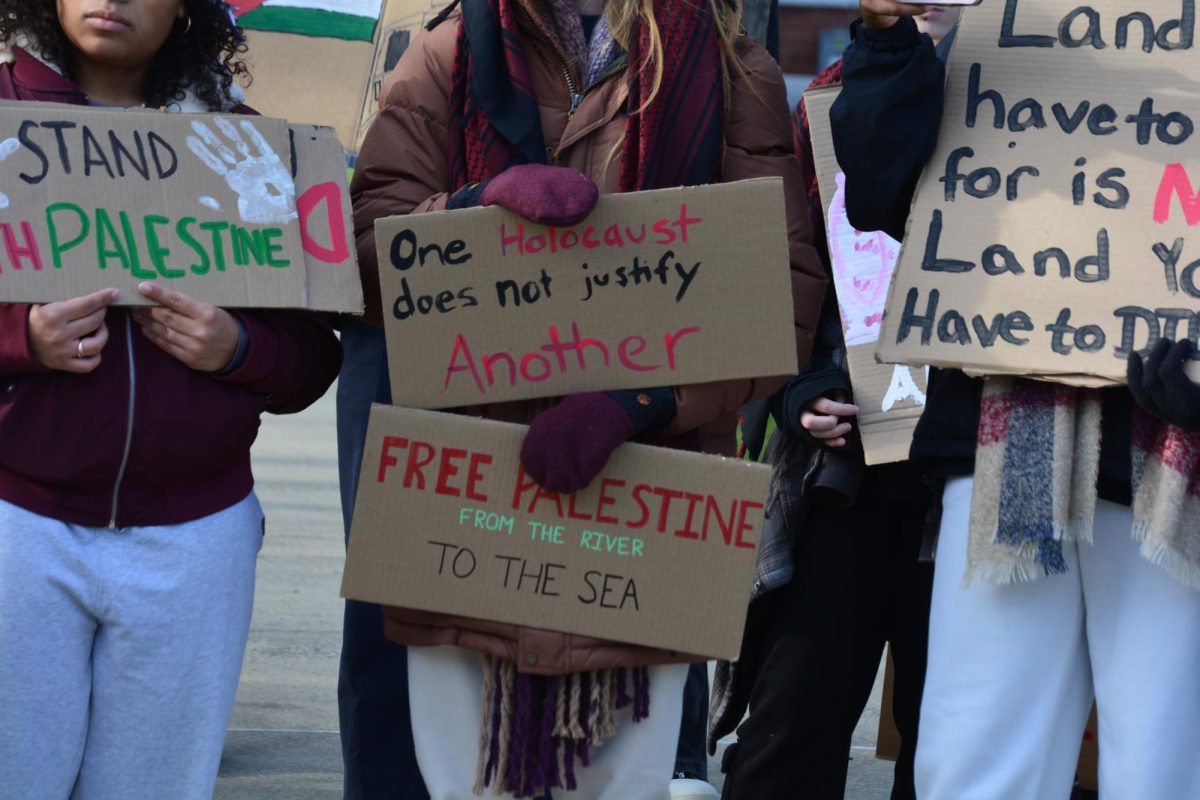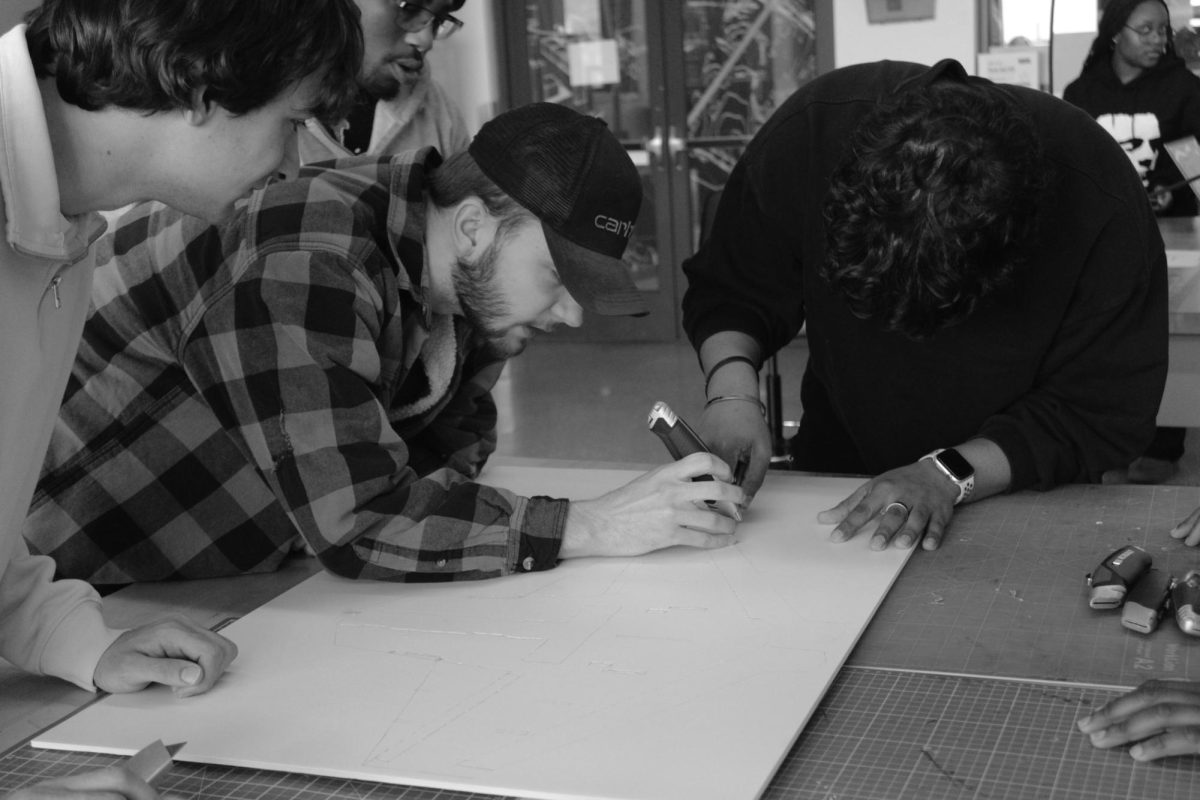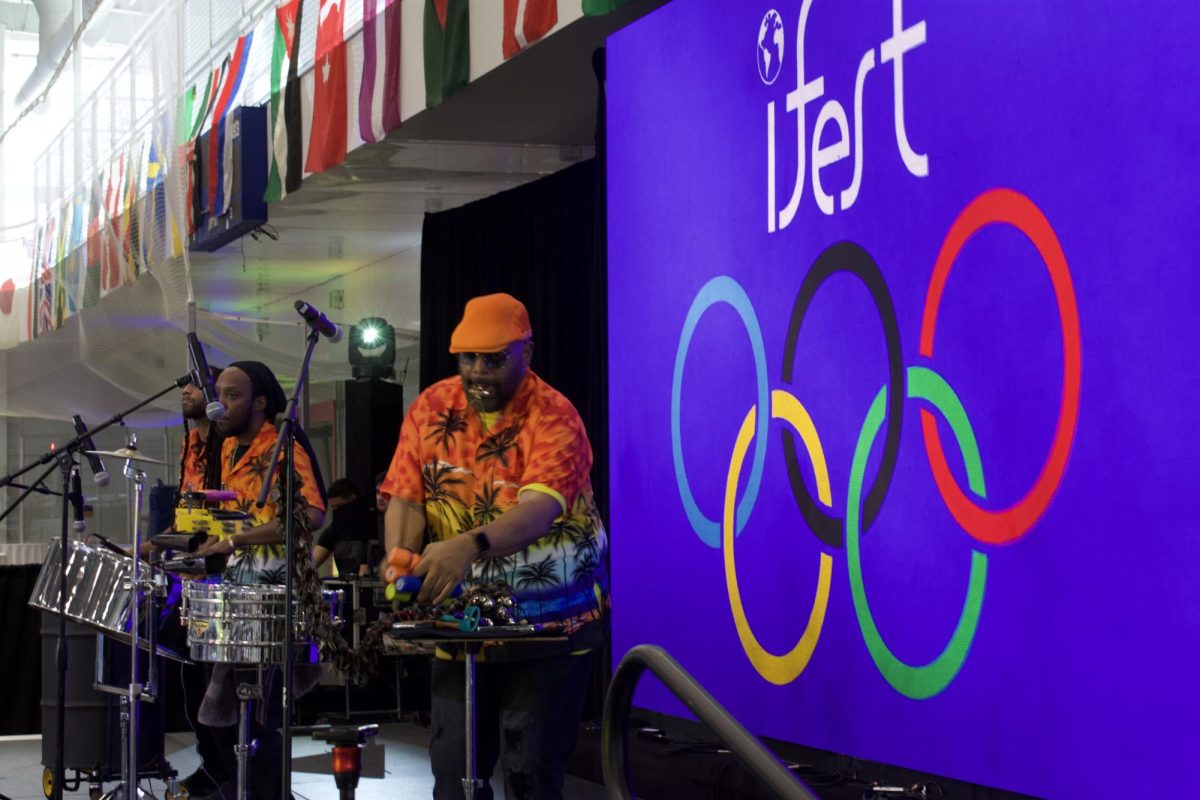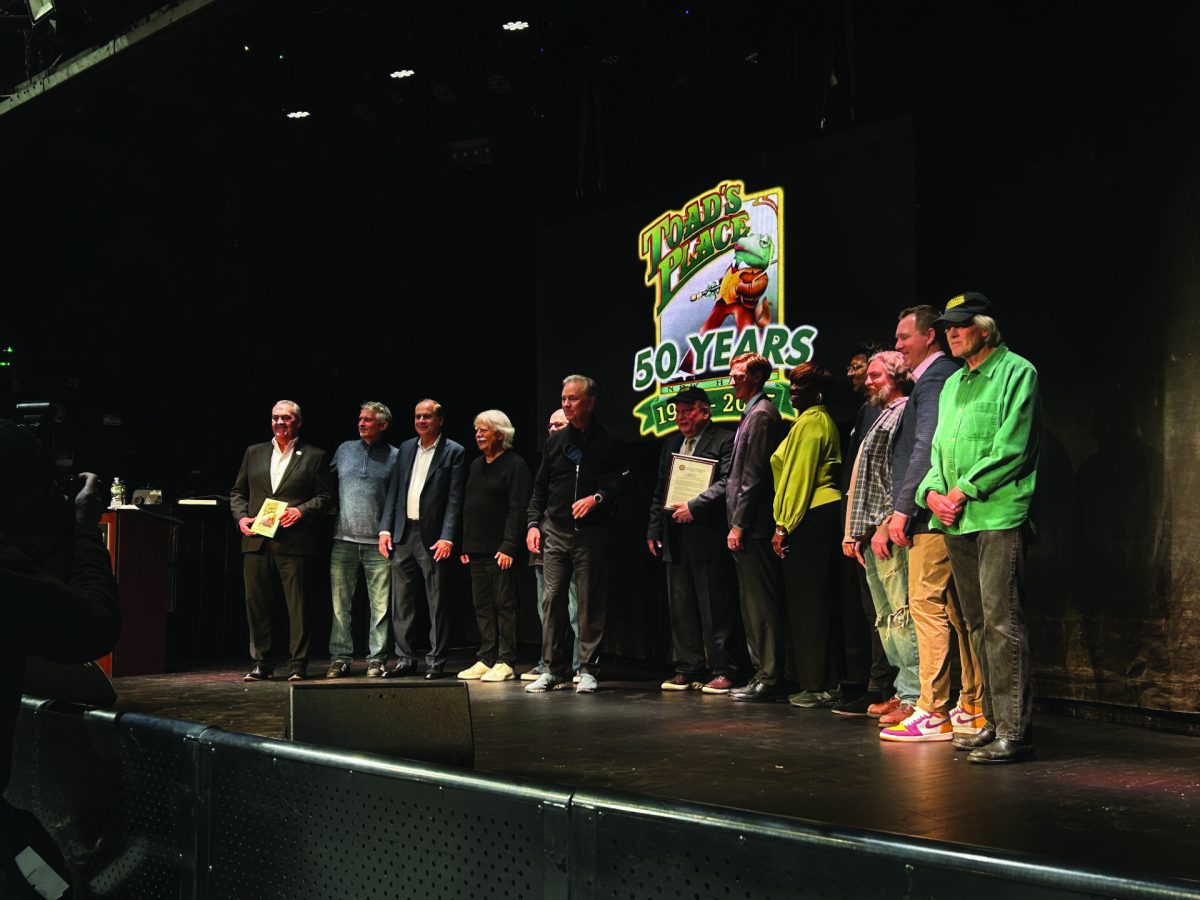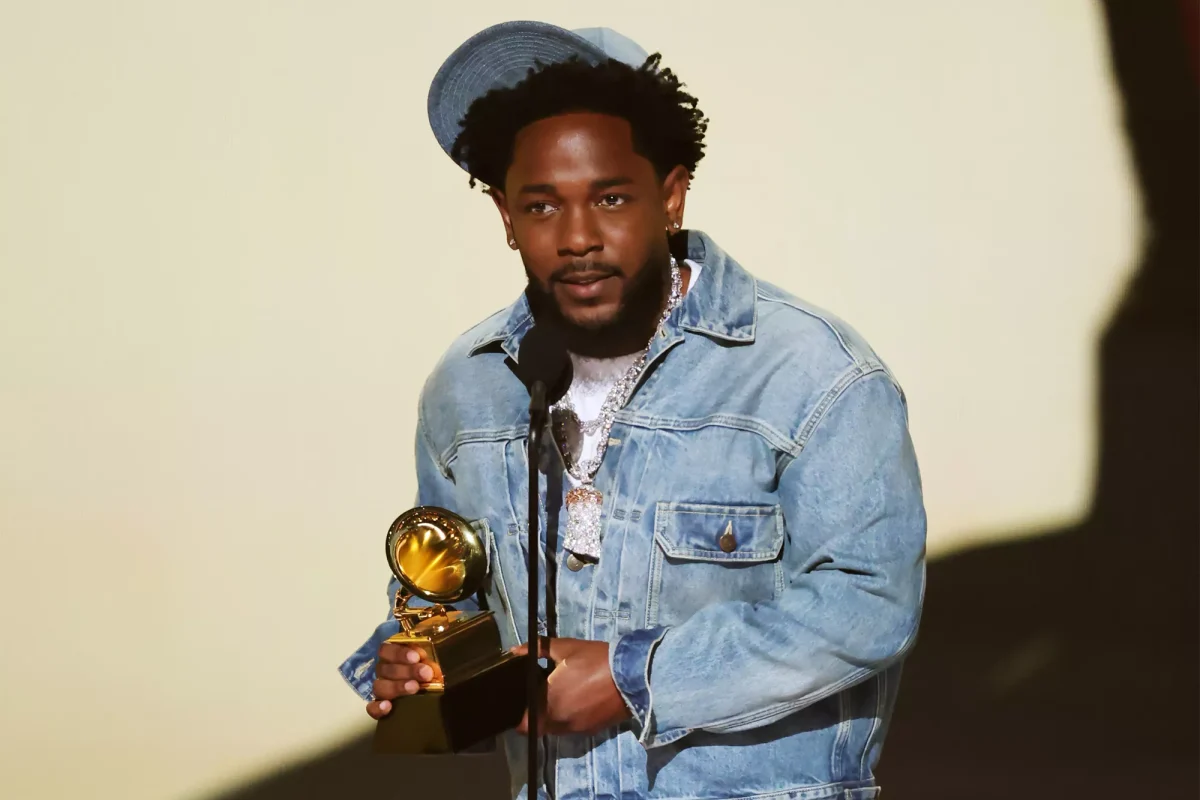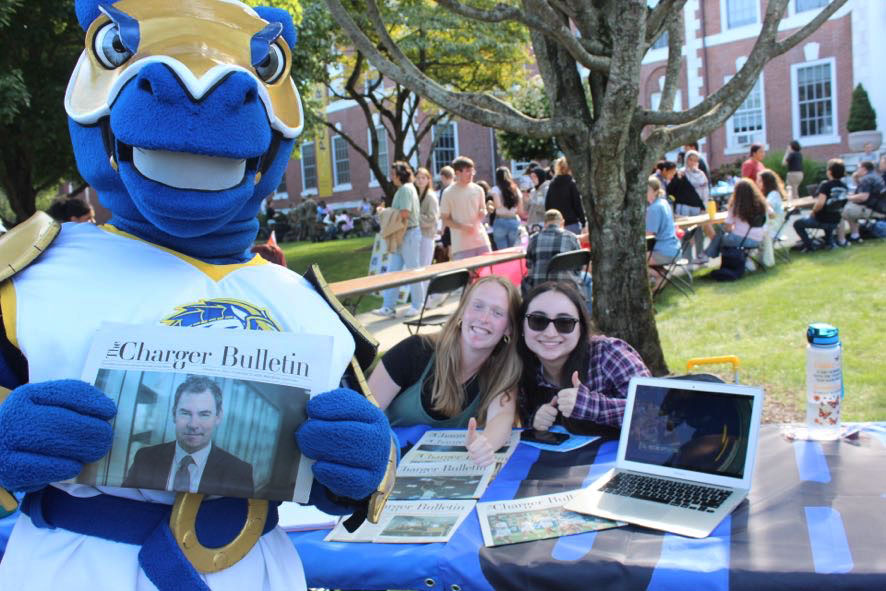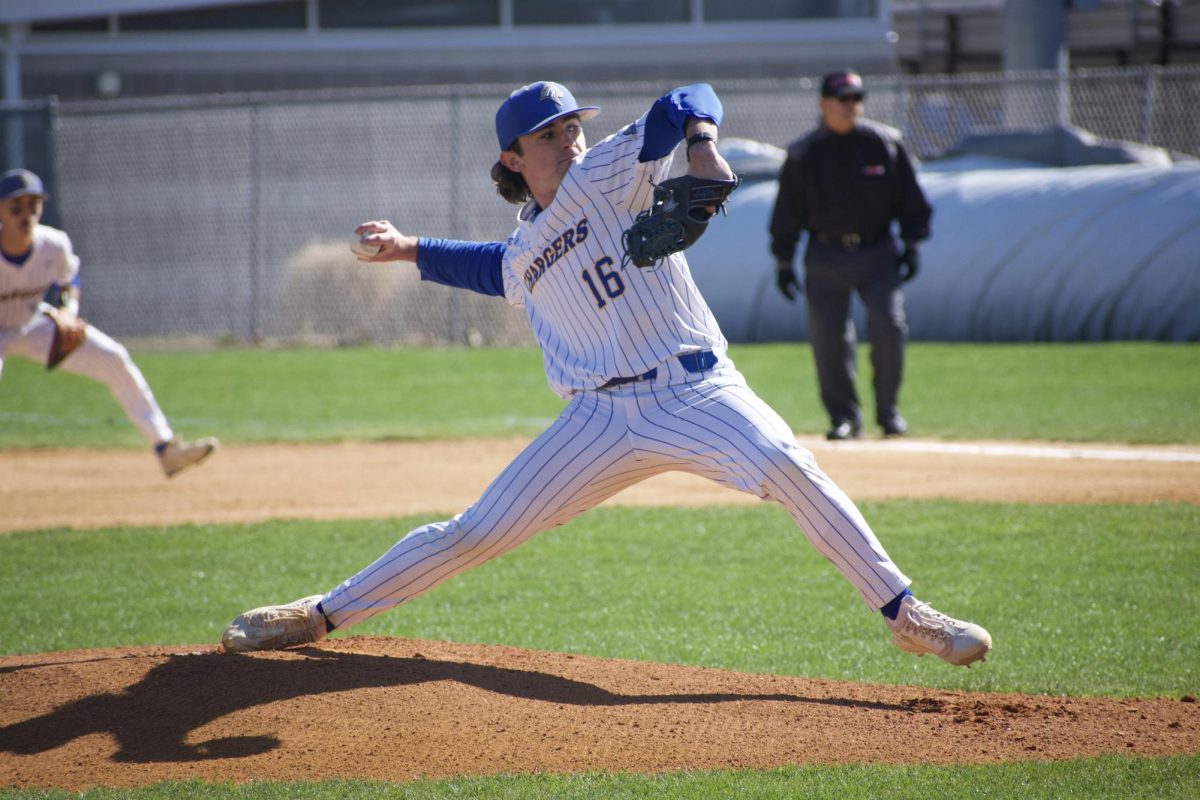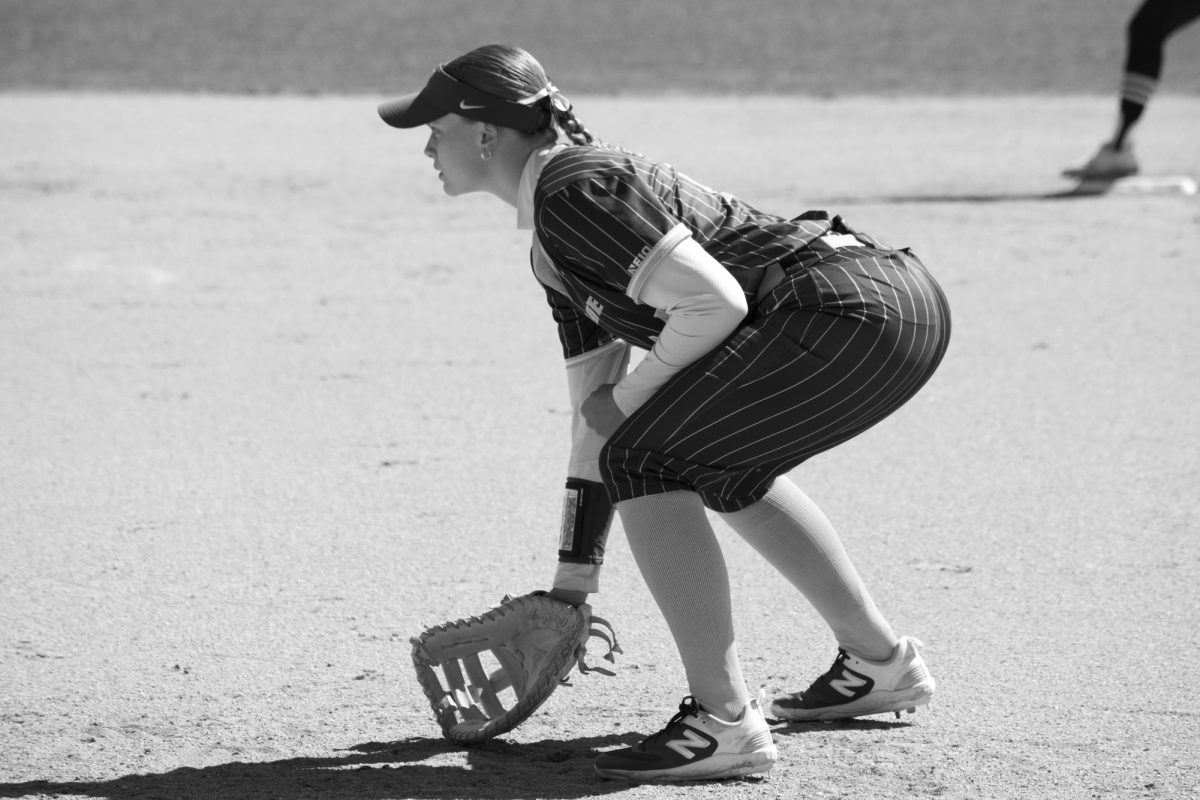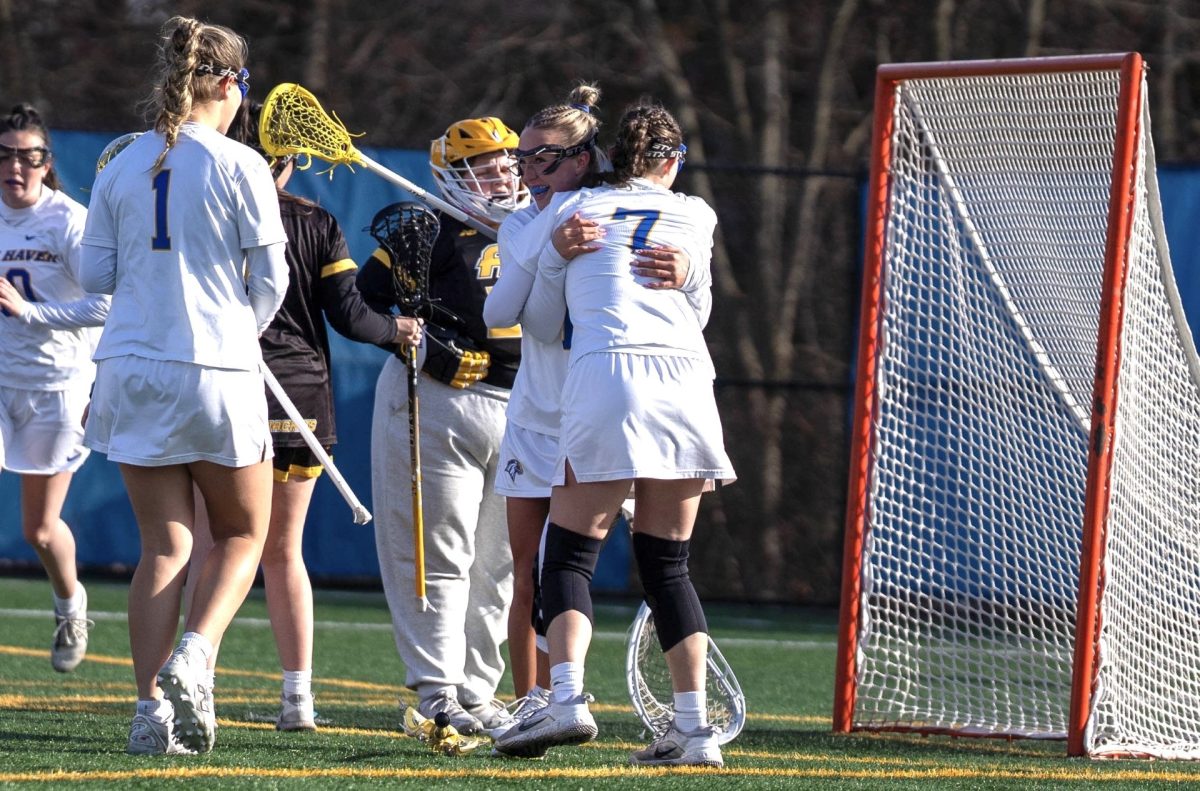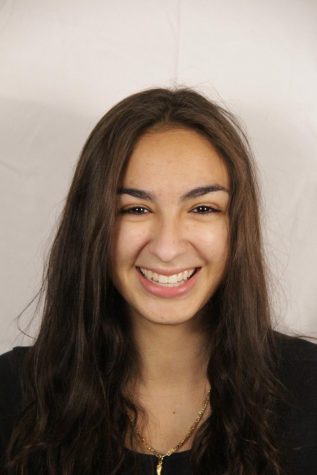Aiya Chahid stood on the edges of the university seal, surrounded by over 50 of her peers. Despite the wind filtering through the Maxcy Quad, the vice president of the Muslim Student Association (MSA) echoed her voice across the crowded space, reminding those in attendance that “your voices matter,” and urged her fellow students to “use them.”
And that is exactly what a broad collection of University of New Haven students sought to do on Nov. 29. The MSA headed a protest in which student leaders across campus spoke up “calling for a ceasefire in Gaza and condemning the US compliance with the Israeli occupation of Palestine.”
Immediately upon the scheduled time of the protest, a sea of cardboard signs sharing messages such as “Free Palestine from the river to the sea,” “One Holocaust does not justify another” and “bombing kids is not self-defense” flooded the quad, held up by the hands of the student body.
Chahid said MSA is acting alongside Muslim student associations across the state in a joined effort to take a stand in support of and solidarity with the Palestinians and in doing such said that “every step we take is a step toward freedom for all who are screaming for help as the world does nothing.”
MSA president Youssef Ossama spoke about the demands being made to the university’s administration. The next day, a longer version of the demands was posted to the organization’s Instagram account.
MSA is demanding three actions from the University of New Haven.
The first is an accountability for the vandalism committed to the posters placed across campus advertising the protest. The students are requesting a “public and formal acknowledgement” of the vandalism and said, according to the list of demands, that an acknowledgement would “demonstrate the university’s commitment to fostering a respectful and inclusive environment.”
The second request is either the addition of the Palestinian flag in the Bartels dining hall or the removal of the Israeli flag. This, said the MSA, would demonstrate the university’s acclaimed neutrality.
MSA’s final request, as outlined by Ossama, is the appointment of a chaplain for Muslim students. This would, according to the demands, recognize “the importance of spiritual support, especially during challenging times.” The request extends to the addition of chaplains from multiple faiths to guide students with various religious backgrounds.
While this message was delivered to members of numerous student organizations who were amongst those partaking in the political stand, no members of university administration attended the event and have yet to acknowledge the protest or demands presented surrounding it.
Nathan Seifeet, associate professor of chemistry, was present at the gathering and he took to LinkedIn to share the experience.
Seifeet wrote that he discovered the protest as he took a break from his work Wednesday morning. “I think I was the only faculty member standing there, but all the same, I was deeply warmed by our students’ impassioned voices and their desire for peace and justice for those displaced in the world. I feel empowered by their voice; our university administration has taken a vow of silence on the matter, perhaps rationally so: it feels like it’s hard as an academic to stand up for what you believe in, in this matter.”
While MSA spearheaded the organization of the protest, collaboration between student advocates from numerous organizations created the speaker lineup.
The Young Democratic Socialists of America (YDSA) had junior president Mason Smith and senior treasurer Annabelle Davis speak alongside their peers. Smith took to the podium to remind the crows that “today we stand united in our demand for justice.”
He then proceeded to delve into the lives of Palestinian children, who statistically make up the majority of the population of the Gaza strip, which he noted is one of the most densely populated areas of the world. He spoke of their parents, who dreamed about the futures of their children, calling this “a future stolen by senseless and needless violence.”
Davis highlighted the solidarity among the student population around this movement. She also spoke about the role of the United States in the international crisis and said that “our country is complicit in the perpetuation of this crisis.”
Other groups whose members spoke in support included the NAACP and Pride. Both organizations’ presidents spoke on behalf of their respective groups.
Senior Destiny Ray spoke as a queer member of the Eastern Pequot Tribal Nation, and shared how she understood the threat of cultural erasure: “It makes me angry that there are people that can’t see [the problem].”
Senior Sadara Funches spoke about the wide array of actions that qualified as advocacy toward human rights causes, and highlighted the efforts being across the U.S. that “silence and complacency is a luxury we cannot afford.”
MSA leadership’s advocacy continued further through graduate student Mafiz Shaikh, their community outreach coordinator, said that “we need to be louder than ever,” and posed questions on the understanding of those resisting support of Palestine: “Do we need a history lesson to know that what is going on is wrong?”
The collective of unified students maintained their strength in numbers by the end of the event, at which point the quad remained equally as full as the commencement of the protest. Students interested in getting further involved in the socio-political affairs surrounding the Israeli-Palestinian conflict, contact MSA or the Myatt Center.



